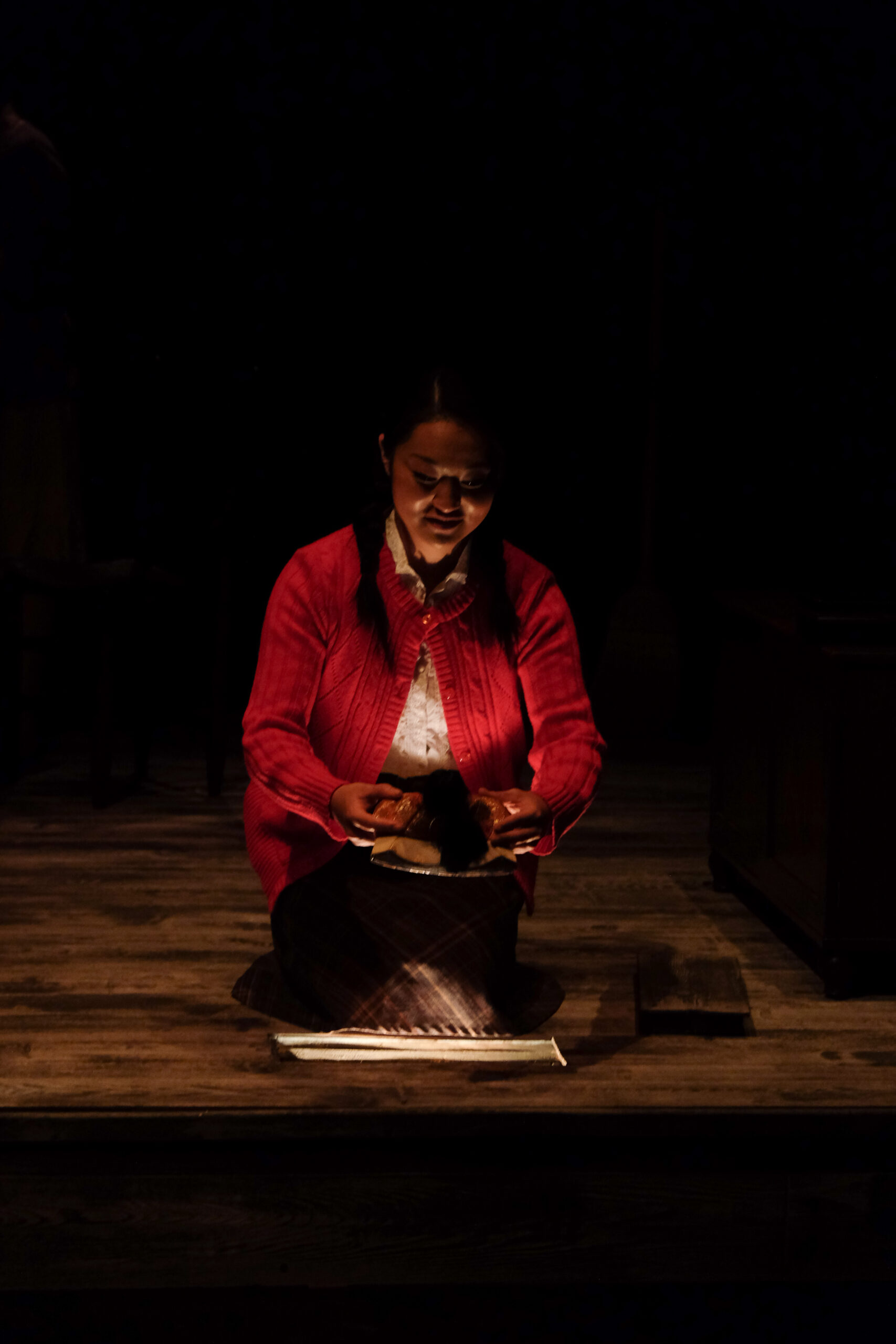Opera Maine presents a single, high-profile production every summer at Merrill Auditorium, but it also runs a studio artists program for young singers that is equally important and stages a chamber opera in the weeks before the main presentation. Though more modest than the big-ticket presentations of classics from the standard canon (this year’s is “La Traviata”), the studio artist productions are more adventurous, drawing on contemporary repertory.
For anyone who believes that opera is at its best when it takes on important, if often uncomfortable social and historical issues – rather than, say, the woes of a thwarted romance between a rich kid and a courtesan – this year’s presentation of Jack Perla‘s “An American Dream” is a must-see production. It had its Maine premiere on Wednesday evening at St. Lawrence Arts and runs through Sunday, with performances in Portland, Harrison and Ocean Park.
CONCERT REVIEW
WHAT: Opera Maine’s production of Jack Perla’s “An American Dream”
WHERE: St. Lawrence Arts, Portland
REVIEWED: Wednesday, July 12, 2017
First staged by the Seattle Opera in 2013, Perla’s work looks unflinchingly at the internment of Japanese-Americans during World War II, shown through the prism of Nazi Germany’s contemporaneous treatment of European Jews. The parallel, as one of Perla’s characters notes (albeit in a self-serving justification of a plainly immoral act) is not exact: Japanese-Americans were sent to camps for the duration of the war, while European Jews were targeted for extermination and used as slave labor while they waited.
But racism lay at the heart of both programs. It was not one of America’s prouder moments, and though the work is four years old, it could not be more timely.
Perla and his librettist, Jessica Murphy Moo, built their story around two families – a Japanese couple, Matoko and Hiroko Kobayashi, and their young daughter, Setsuko, and an American veteran, Jim Crowley, and his wife, Eva, a German-Jewish refugee. Knowing that the Kobayashis will soon be evacuated, Jim buys their home for a fraction of its value – a detail he has not revealed to Eva, who lives in hope that her parents will be able to escape Germany and live with them.
Before leaving, the Kobayashis burn their personal effects in fear of being regarded as loyal to Japan. But Setsuko, unable to part with a traditional Japanese doll, hides her treasure under a loose floorboard. Eva discovers it, and having defied Jim’s insistence that she discard it, writes to Setsuko as the war ends, inviting her to retrieve it. Setsuko, meanwhile, has kept a letter that arrived from Germany for Eva, just before the Crowleys moved in. When she returns for the doll, she hands Eva the letter, which bears the details of her family’s fate.
Perla conveys all this, along with the Kobayashis’ and Eva’s emotional turmoil (Jim is an opportunist, immune to introspection) with extraordinary economy – the work runs just over 70 minutes – and with a responsive, eclectic score that responds to, and colors, the interactions between the characters, each of whom has at least one striking aria that shows us something of the character’s inner life.
Perla’s music is consonant and conservative overall, with flickers of understated pentatonic themes (including a fragmented reference to “Sakura,” the Japanese traditional melody) in the Kobayashis’ scenes. But he is not averse to using dissonance when the situation demands it, most notably during Hiroko’s arrest and in the revelation scene at the end of the opera.
The two sopranos are the stars in the consistently strong cast. Jin-Xiang Yu uses her bright, clear timbre and admirable vocal flexibility to create a moving portrayal of Setsuko, and Anna Bridgman sings Eva’s music powerfully, capturing her growing doubts about Jim’s moral compass. Mezzo-soprano Yunlei Xie has some wrenching moments as the depressed Hiroko, and Hidenori Inoue uses his rich bass to create a dignified Makoto. Baritone Andrew Paulson, also in fine voice, brought what little nuance to the cynical Jim as the character allows.
Richard Gammon directed the production ably with an efficient, spare set – a house frame with a few props and a bit of barbed wire to suggest the internment camp – by John Sundling. The performance was accompanied by a piano reduction, in which music director Timothy Steele captured much of the color and force of Perla’s score.
Allan Kozinn is a former music critic and culture writer for The New York Times who lives in Portland. He can be contacted at:
Twitter: kozinn

